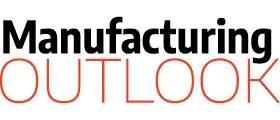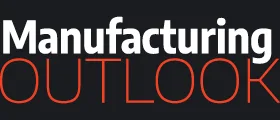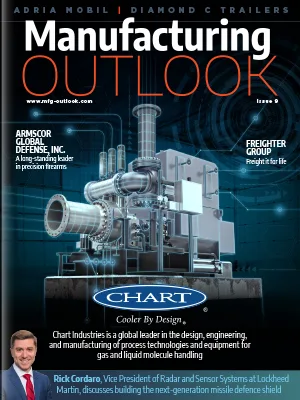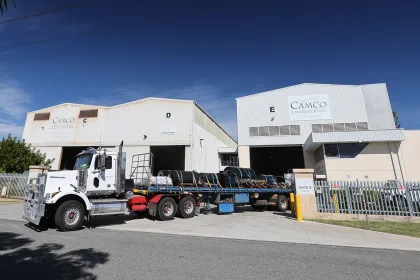With thousands of global environmental regulations, taking a proactive approach to sustainability is more important than ever. David Evans, Head of Manufacturing at ServiceNow, discusses how digital transformation can revolutionise environmental, social, and governance (ESG) reporting in manufacturing to ensure compliance and meet stakeholder expectations.
THE FAST TRACK FOR ESG AND FUTURE-READY MANUFACTURING
We’ve talked about it, thought about it, and maybe even piloted it, but why are too many organisations still finding themselves in the slow lane when it comes to delivering ESG objectives and becoming a digitally enabled enterprise?
Like it or not, with the first reports under the EU’s Corporate Sustainability Reporting Directive due in January 2025, the time to take action is here and now. Leaders in the sector need to adopt new digital workflows to truly understand their ESG data and make progress on this issue.
With more than 2,400 ESG regulations now in force across 80 different jurisdictions around the world, ESG reporting is right at the top of the corporate agenda for manufacturers. For organisations to get this right and reap the rewards, it requires new, digital ways of working and more collaborative (and perhaps difficult) conversations with suppliers. Investors also increasingly see sustainability and ethical labour practices as being on par with corporate governance and even financial performance when valuing companies.
For manufacturers, the move towards improved ESG performance is happening in parallel with a shift towards technology-based ways of working, with digital workflows and the adoption of technologies such as sensor-filled ‘smart factories’. According to KPMG’s Global Industrial CEO Outlook, ESG initiatives now rank among the top operational priorities (15 percent) for manufacturing CEOs, alongside a shift towards digitising and advancing connectivity across the business (22 percent). For leaders in the sector, ESG is seen as linked to the company’s wider performance, with CEOs fearing recruitment challenges if ESG goals are not met (22 percent) and a quarter fearing difficulty in raising finances. However, while manufacturers are aware of the urgency of modernising their approach to ESG, gaps still remain, particularly around the reporting of emissions from supply chains.
Manufacturing accounts for 24 percent of global greenhouse gas emissions, but tracking ESG compliance amongst suppliers remains a key ‘blind spot’ for the sector, with just 19 percent of manufacturers disclosing full data related to Scope 3 emissions. Digital workflows will allow business leaders to tackle this key issue at speed.
MEETING THE DEMAND FOR REAL-TIME INSIGHT
With increasing pressure to deliver on ESG issues coming from all angles, including regulators, investors, customers, and employees, the ‘old ways’ of measuring ESG are simply not enough: a new, digital approach is required. Recording ESG objectives at each stage in the supply chain manually and entering this data into spreadsheets is simply too slow. To fast-track efforts to achieve ESG objectives, business leaders need to embrace automated tools integrated into other systems and dynamic tracking.
Digital workflows and tools to track ESG progress will allow business leaders to track compliance in real-time right across the supply chain. Leaders in the supply chain sector are also acutely aware of the importance of investing in technology, with 50 percent of supply chain leaders saying they plan to invest in technologies such as advanced analytics in the coming year, according to KPMG’s Supply Chain Trends 2024 report.
Leaders in the manufacturing sector must work closely with suppliers to drive ESG performance. Strategic supply chain management can help businesses cut costs and drive innovation while boosting sustainability. Standardising supply chain reporting is complex, and businesses must work closely with suppliers, adopting technologies to share data and track progress.
Delving deep into the supply chain to ensure that Tier 1 and Tier 2 suppliers use sustainable components will boost the strength of manufacturing companies in the future. Airbus, for example, is digitally optimising its procurement and management processes to boost ESG compliance. It is working closely with its 12,000 global suppliers to choose materials that are sourced ethically and responsibly, which have a lower impact on the environment.
A SINGLE SOURCE OF TRUTH FOR ESG
The key to achieving ESG goals is having a ‘single source of truth’ for all ESG and sustainability goals and disclosures. This is why it’s so important to adopt digital workflows which offer a view of the organisation’s past and present ESG story in one place. Adopting digital workflows means that leaders in the sector can aggregate and validate data automatically, making disclosure easier and more reliable.
Business leaders must opt for platforms which link business systems such as enterprise resource planning (ERP), factory systems, and purchasing together to increase visibility across the enterprise. Armed with this information, it’s easier to oversee operations to increase regulatory compliance and build simplicity into supplier relationships, even when facing unexpected disruptions.
REAPING THE REWARDS
In today’s world, ESG performance is no longer a nod towards a company being ‘good’ on social and environmental issues; it’s key to driving long-term financial performance and satisfying investors. Edelman’s Trust Barometer 2020 found 88 percent of investors say that companies that prioritise ESG initiatives represent better opportunities for long-term results, and 92 percent say that companies with strong ESG performance deserve a premium valuation of their share price.
Manufacturers today are rightly focused on costs, thanks to ongoing pressures such as inflation and energy costs. The adoption of digital workflows to measure ESG performance and to engage and share data across the supply chain can also drive efficiencies across the organisation, boosting growth, reducing costs, and paving the way for future innovation.
A CLEANER FUTURE
Adopting digital workflows will be a key part of every manufacturer’s sustainability journey, with automated tools and dynamic tracking helping manufacturers tackle sustainability, even in the sector’s ‘blind spot’ around the supply chain. To do so requires manufacturers to work closely with suppliers and for both to shift towards smarter digital workflows. This will not only help leaders comply with the thousands of ESG regulations around the world but also drive long-term value for the business.
































